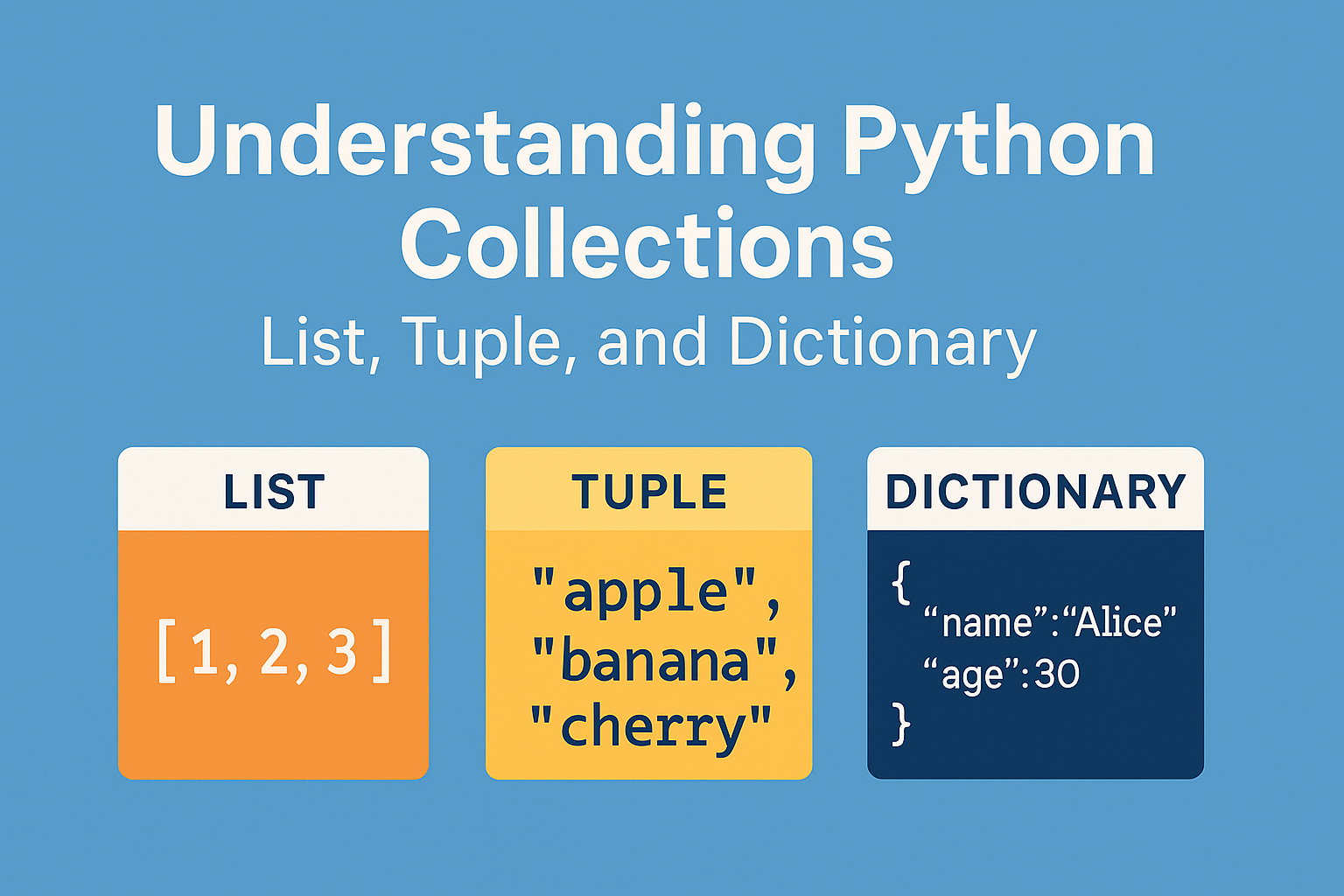Introduction
When working with sequences in Python, efficient iteration can save both time and lines of code. Two powerful tools for this are enumerate() and zip(). These built-in functions allow you to loop over data with indexes or in parallel, respectively.
Using enumerate(): Loop With Index
enumerate() is useful when you need both the index and the value during a loop.
colors = ['red', 'green', 'blue']
for index, color in enumerate(colors):
print(index, color)
Output:
0 red
1 green
2 blue
You can also specify a starting index:
for i, value in enumerate(colors, start=1):
print(i, value)
Using zip(): Loop in Parallel
zip() lets you iterate over multiple iterables simultaneously.
names = ['Alice', 'Bob', 'Charlie']
scores = [85, 90, 78]
for name, score in zip(names, scores):
print(f"{name}: {score}")
Output:
Alice: 85
Bob: 90
Charlie: 78
It’s important to note that zip() stops at the shortest iterable.
Combining Both
You can even nest these for advanced usage:
for idx, (name, score) in enumerate(zip(names, scores)):
print(f"{idx}. {name}: {score}")
Conclusion
enumerate() and zip() are excellent tools for writing more Pythonic loops. Try them in your next project for cleaner and more readable code.
Related Links

Understanding Python Collections: List, Tuple, and Dictionary
IntroductionWorking with collections is a core part of programming in Python. Whether you're storing a list of items, gr...

Mastering Python Control Flow: if, for, and while Explained
IntroductionControl flow is the foundation of any programming language, and Python is no exception. Whether you're makin...



Comment